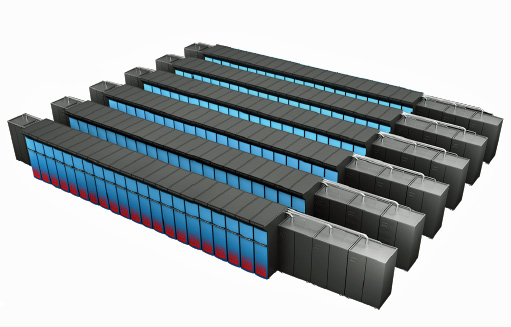US to Overtake China with Fastest Supercomputer

American geeks may soon celebrate taking back the crown for "fastest supercomputer in the world." A U.S. national lab plans to unveil a "Titan" supercomputer in 2012 that would dwarf the computing speeds of the latest record holder from China, as well as all previous competitors.
The new computing behemoth is designed to crunch 20,000 trillion calculations (20 petaflops) per second, according to PhysOrg. That handily beats China's Tianhe-1A supercomputer, which can do 2,500 trillion calculations (2.5 petaflops) per second.
Such calculations look staggering on a human scale. It would take 120 billion people with 120 billion calculators 50 years to do what the Titan supercomputer might do in a day.
The $100 million Titan is expected to take on the task of calculating complex energy systems for the U.S. Department of Energy. Once completed by Cray Computers, it would join its somewhat slower cousins at the Oak Ridge National Laboratory in Oak Ridge, Tenn.
Supercomputers get their super speed from many interconnected processing boxes. That requires the latest interconnect systems that allow for the fastest-possible data transfer among the different boxes. In this case, Titan would use the Gemini XE interconnect that debuted last year.
But the Titan may not be alone in 2012. IBM also plans to unveil its own 20 petaflop machine, called Sequoia, at Lawrence Livermore National Laboratory in California in that year. Sequoia would focus on simulations of nuclear explosions for the purpose of eliminating real-world nuke testing.
Countries such as Japan and China continue to build blazingly fast supercomputers, and so there's no guarantee as to how long the U.S. may retain its anticipated supercomputing crown. For now, U.S. computer scientists can focus on whether they can keep coming up with superlative names for their supercomputers: Jaguar, Kraken and Titan are taken.
Get the world’s most fascinating discoveries delivered straight to your inbox.
This story was provided by InnovationNewsDaily, a sister site to LiveScience.
 Live Science Plus
Live Science Plus






